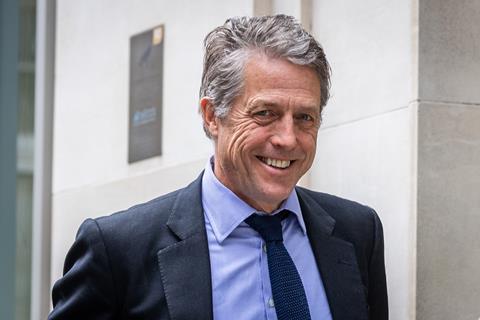Actor Hugh Grant has said he was forced to abandon his hopes of a phone hacking trial by the risks created by a Part 36 offer.
The star of Paddington and Love Actually said today that he had to settle his case against The Sun publisher News Group Newspapers.
Grant said in a series of posts on X (formerly Twitter) that News Group claimed to be entirely innocent of allegations including phone hacking, unlawful information gathering, landline tapping and the destruction of evidence. ‘As is common with entirely innocent people, they are offering me an enormous sum of money to keep this matter out of court,’ he added.

Grant said he did not want to accept the undisclosed amount and therefore settle the case, preferring the allegations to be tested in court. But the potential costs sanctions of turning down the settlement offer were too severe.
‘If I proceed to trial and the court awards me damages that are even a penny less than the settlement offer, I would have to pay the legal costs,’ he said. ‘My lawyers tell me that that is exactly what would most likely happen here. Rupert Murdoch’s lawyers are very expensive. So even if every allegation is proven in court, I would still be liable for something approaching £10m in costs. I’m afraid I am shying at that fence.’
Grant said the settlement money would be ‘repurposed’ through groups such as the Hacked Off to campaign against the excesses of the press.
He thanked his legal team, namechecking lawyers Anjlee Sangani, David Sherborne, Evan Harris and Dan Waddell.
Grant’s claim in relation to the Sun claim was due to be considered at a trial next year. NGN has previously denied that any unlawful activity took place at the Sun.
Gideon Benaim, partner and head of reputation protection at media firm Simkins LLP commented: ‘A Part 36 offer is an incredibly powerful way of pressuring a party to litigation to settle a civil claim. Hugh Grant would have been left in little doubt by his lawyers that the offer was pitched so that there was a real risk that he would not “beat” it at trial. Therefore, even though he may have preferred to have fought the case, the financial risks were simply too great and he had, in effect, no choice but to settle.’
This article is now closed for comment.



























25 Readers' comments